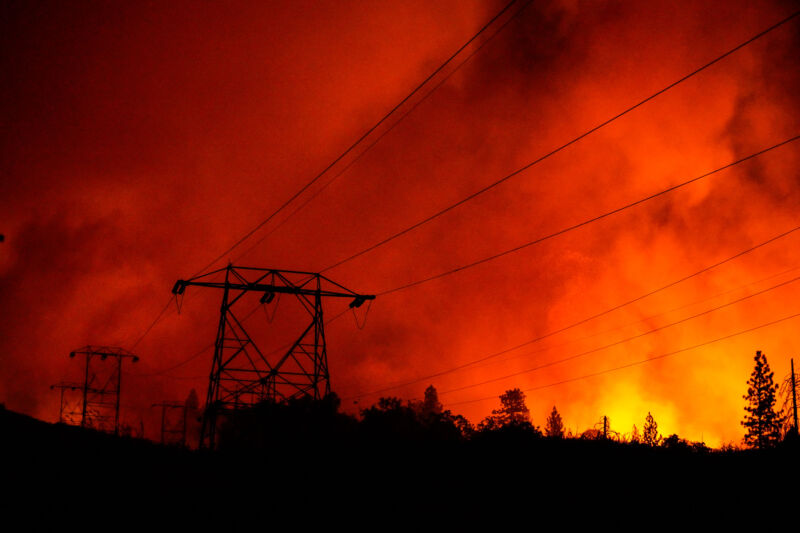
This text initially appeared on Inside Local weather Information, a nonprofit, impartial information group that covers local weather, vitality and the setting. It’s republished with permission. Join their publication right here.
Most individuals are “very” or “extraordinarily” involved in regards to the state of the pure world, a brand new international public opinion survey exhibits.
Roughly 70 % of twenty-two,000 folks polled on-line earlier this 12 months agreed that human actions had been pushing the Earth previous “tipping factors,” thresholds past which nature can’t get better, like lack of the Amazon rainforest or collapse of the Atlantic Ocean’s currents. The identical variety of respondents mentioned the world wants to cut back carbon emissions throughout the subsequent decade.
Just below 40 % of respondents mentioned technological advances can remedy environmental challenges.
The World Commons survey, carried out for 2 collectives of “financial thinkers” and scientists often called Earth4All and the World Commons Alliance, polled folks throughout 22 international locations, together with low-, middle- and high-income nations. The survey’s acknowledged goal was to evaluate public opinion about “societal transformations” and “planetary stewardship.”
The outcomes, launched Thursday, spotlight that individuals dwelling below various circumstances appear to share worries in regards to the well being of ecosystems and the environmental issues future generations will inherit.
Discover the newest information about what’s at stake for the local weather throughout this election season.
However there have been some regional variations. Individuals dwelling in rising economies, together with Kenya and India, perceived themselves to be extra uncovered to environmental and local weather shocks, like drought, flooding, and excessive climate. That group expressed greater ranges of concern in regards to the setting, although 59 % of all respondents mentioned they’re “very” or “extraordinarily” anxious about “the state of nature immediately,” and one other 29 % are at the least considerably involved.
People are included within the international majority, however a extra complicated image emerged within the particulars of the survey, carried out by Ipsos.
Roughly one in two People mentioned they aren’t very or by no means uncovered to environmental and local weather change dangers. These perceptions distinction sharply with empirical proof displaying that local weather change is having an impression in practically each nook of the USA. A warming planet has intensified hurricanes battering coasts, droughts placing center American farms, and wildfires threatening properties and air high quality throughout the nation. And local weather shocks are driving up costs of some meals, like chocolate and olive oil, and shopper items.
People additionally largely imagine they don’t bear duty for international environmental issues. Solely about 15 % of US respondents mentioned that high- and middle-income People share duty for local weather change and pure destruction. As an alternative, they attribute essentially the most blame to companies and governments of rich international locations.
These survey responses recommend that at the least half of People could not really feel they’ve any pores and skin within the sport in relation to addressing international environmental issues, in accordance with Geoff Dabelko, a professor at Ohio College and professional in environmental coverage and safety.
Translating concern in regards to the setting to precise change requires folks to imagine they’ve one thing at stake, Dabelko mentioned. “It’s troubling that People aren’t making that connection.”
Whereas fossil gas corporations have lengthy campaigned to form public notion in a method that absolves their business of fault for ecosystem destruction and local weather change, particular person habits does play a job. People have a few of the highest per-capita consumption charges on this planet.
The world’s wealthiest 10 % are answerable for practically half the world’s carbon emissions, together with ecosystem destruction and associated social impacts. As an example, American consumption of gold, tropical hardwoods like mahogany and cedar and different commodities has been linked to the destruction of the Amazon rainforest and assaults on Indigenous folks defending their territories from extractive actions.
The US is without doubt one of the world’s wealthiest international locations and residential to 38 % of the world’s millionaires (the most important share). However an individual doesn’t must be a millionaire to suit throughout the cohort of the world’s wealthiest. People with out youngsters incomes greater than $60,000 a 12 months after tax, and households of three with an after-tax family revenue above $130,000, are within the richest 1 % of the world’s inhabitants.
United Nations emissions hole studies have mentioned that to succeed in international local weather targets, the world’s wealthiest folks should reduce their private emissions by at the least a issue of 30. Excessive-income People’ emissions footprint is basically a consequence of way of life decisions like dwelling in giant properties, flying typically, choosing private autos over public transportation, and conspicuous consumption of quick vogue and different shopper items.



